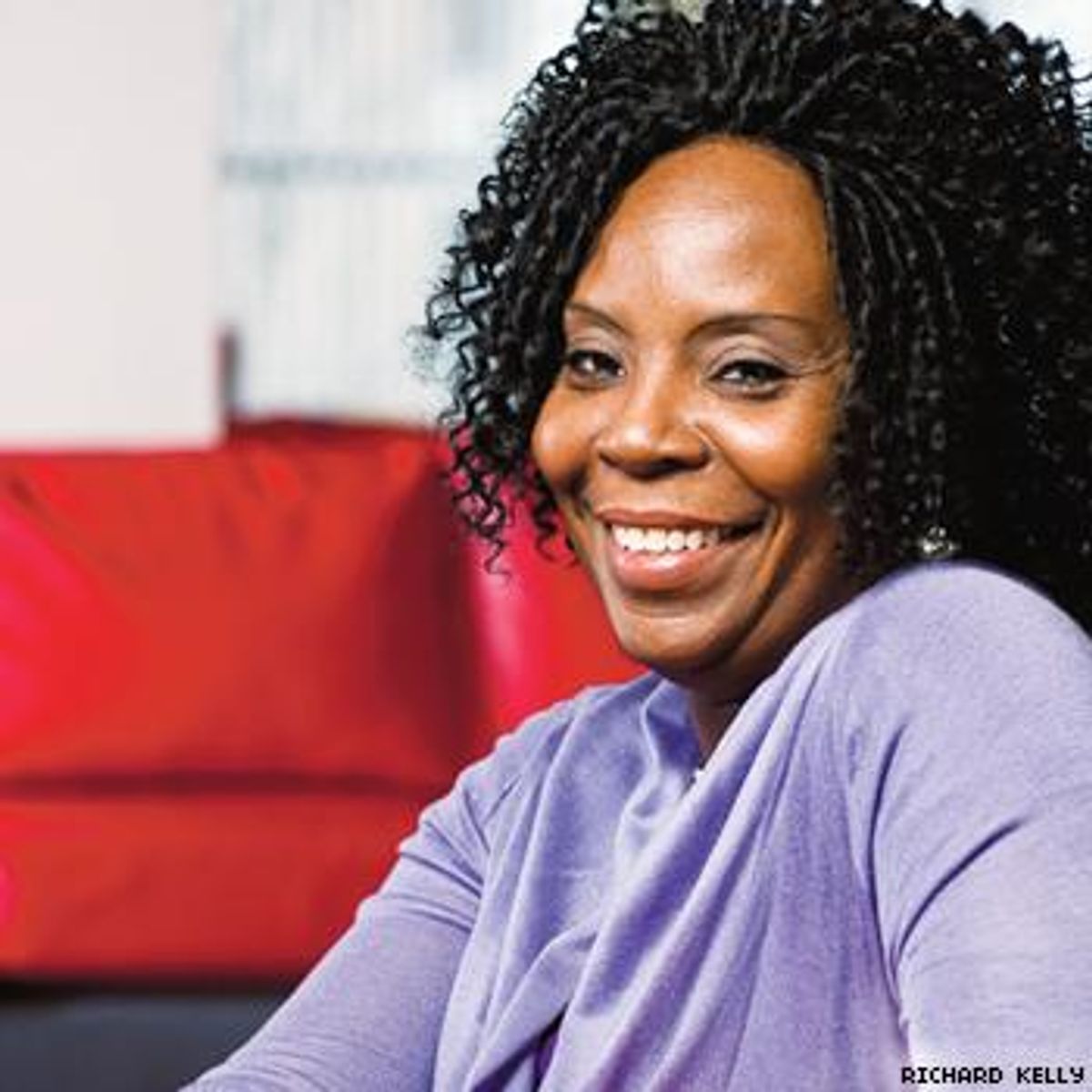Treatment GuideJust DiagnosedSex & DatingAfrican AmericanStigmaAsk the HIV DocPrEP En EspañolNewsVoicesPrint IssueVideoOut 100
CONTACTCAREER OPPORTUNITIESADVERTISE WITH USPRIVACY POLICYPRIVACY PREFERENCESTERMS OF USELEGAL NOTICE
© 2025 Pride Publishing Inc.
All Rights reserved
All Rights reserved
Scroll To Top
By continuing to use our site, you agree to our Private Policy and Terms of Use.
Lisa Dukes knows the power of a good idea. A counselor at the Pittsburgh AIDS Task Force, Dukes wanted to make one of her programs -- Sisters Informing Sisters About Topics on AIDS -- more effective. The SISTA gatherings were two-hour formal sessions, and Dukes believed she could reach more women if she made them fun. Soon the Girlfriends Project was born. Inspired by Tupperware parties, the project invites a group of women to the home of a friend. Dukes uses the relaxed setting -- food and drinks are served -- to speak frankly about safer sex and offer HIV tests to attendees. The Girlfriends Project has been so successful that Dukes has presented it at the Centers for Disease Control and Prevention's National HIV Prevention Conference. Tell us about a typical event. If someone comes in contact with one of my brochures or has attended another house party, it's usually a domino effect -- I'll get a call and a woman will want to schedule a party. I meet with the hostess and talk about what kind of food she wants. Anytime a hostess caters a party, she's given a $50 gift card, and guests who get tested receive a $20 gift card. I'll find out from the hostess who will be at the meeting so that I can tweak the information for the group I'm working with. For instance, if the women are more conservative, I won't be as graphic. What happens at the party? I usually have 10 to 15 women, but I've had a party with 22. At the event I give women basic information on risk and sexually transmitted diseases. I've added to the curriculum some domestic-violence information too. I do a lot of hands-on demonstration; I take my [synthetic] penis and vagina to demonstrate how to put on condoms. Everyone gets her own party pack of lubricant and condom cases, which are very cute for your purse. Would men be amenable to attending parties similar to the Girlfriend Project? I think that's something we need to look at, because if I go to a party and a woman's son is upstairs, the mother usually asks, 'Miss Lisa, can you please talk to my son?' and 'Why don't you have programs like these for men?' Brothers need to know too. I think we need to do something for the heterosexual population of men. Nothing against gay men, but we still have a population of heterosexual men not being reached. If we're going to be in this sector of prevention, we need to be teaching prevention across the board. Gay, straight -- it doesn't matter; we need to create curricula designed for every population, not just women. Are people shy at the parties? Honestly, I haven't come across any women who don't want to get involved. I've had women say, 'Oh, my goodness. This makes things easier to talk about.' Another lady said, 'If you didn't have a program like this, I doubt I'd try to get information about HIV -- or even have a conversation about being tested.' That's why it's important to meet people in their comfort zones -- it breaks down a lot of barriers in communication. What was it like presenting the project at the national HIV prevention leadership conference? A bit overwhelming, because so many women there said, 'We need this in our community.' It took my breath away because I thought it was easier for women to get tested than it really is.
From our Sponsors
Most Popular
Lexi Love comes out as HIV+ after Trump deletes federal resources
January 23 2025 11:23 AM
Ricky Martin delivers showstopping performance for 2024 World AIDS Day
December 05 2024 12:08 PM
Trump's orders prompt CDC to erase HIV resources
January 31 2025 5:29 PM
California confirms first case of even more deadly mpox strain
November 18 2024 3:02 PM
This long-term HIV survivor says testosterone therapy helped save his life.
December 16 2024 8:00 PM
Plus: Featured Video
Latest Stories
HRC holds 'die-in' to protest Trump health care cuts
April 28 2025 2:11 PM
The Talk Season 5 premieres this spring with HIV guidance for the newly diagnosed
March 26 2025 1:00 PM
Jess King is here to help you live your happiest, healthiest life yet
March 24 2025 4:35 PM
Gerald Garth is keeping people of color happy and healthy through trying times
March 11 2025 3:38 PM
'RuPaul's Drag Race' star Trinity K Bonet quietly comes out trans
December 15 2024 6:27 PM
Hollywood must do better on HIV representation
December 01 2024 9:00 AM
Post-election blues? Some advice from mental health experts
November 08 2024 12:36 PM
Two right-wing Supreme Court justices signal they may uphold access to PrEP and more
April 21 2025 4:10 PM
500,000 Children at Risk: PEPFAR Funding Crisis
April 08 2025 3:51 PM
Discover the power of Wellness in your life
March 26 2025 12:41 PM
BREAKING NEWS: Trump admin moves to end federal HIV prevention programs
March 18 2025 6:10 PM
Celebrating Black History Month with our annual African American issue
February 01 2025 3:28 PM
Plus nominated for 2025 GLAAD Media Award
January 22 2025 12:42 PM
AIDS Memorial Quilt displayed at White House for the first time
December 02 2024 1:21 PM
Broadway's best raise over $1 million for LGBTQ+ and HIV causes
April 03 2025 7:15 PM
Season 4 of The Switch on resilience & radical self-love returns this spring
March 26 2025 12:20 PM
Tyler TerMeer vows to continue to fight for health care for all
January 28 2025 3:00 PM
A camp for HIV-positive kids is for sale. Here's why its founder is celebrating
January 02 2025 12:21 PM
Decades of progress, uniting to fight HIV/AIDS
December 01 2024 12:30 PM
Climate change is disrupting access to HIV treatment
November 25 2024 11:05 AM











































































